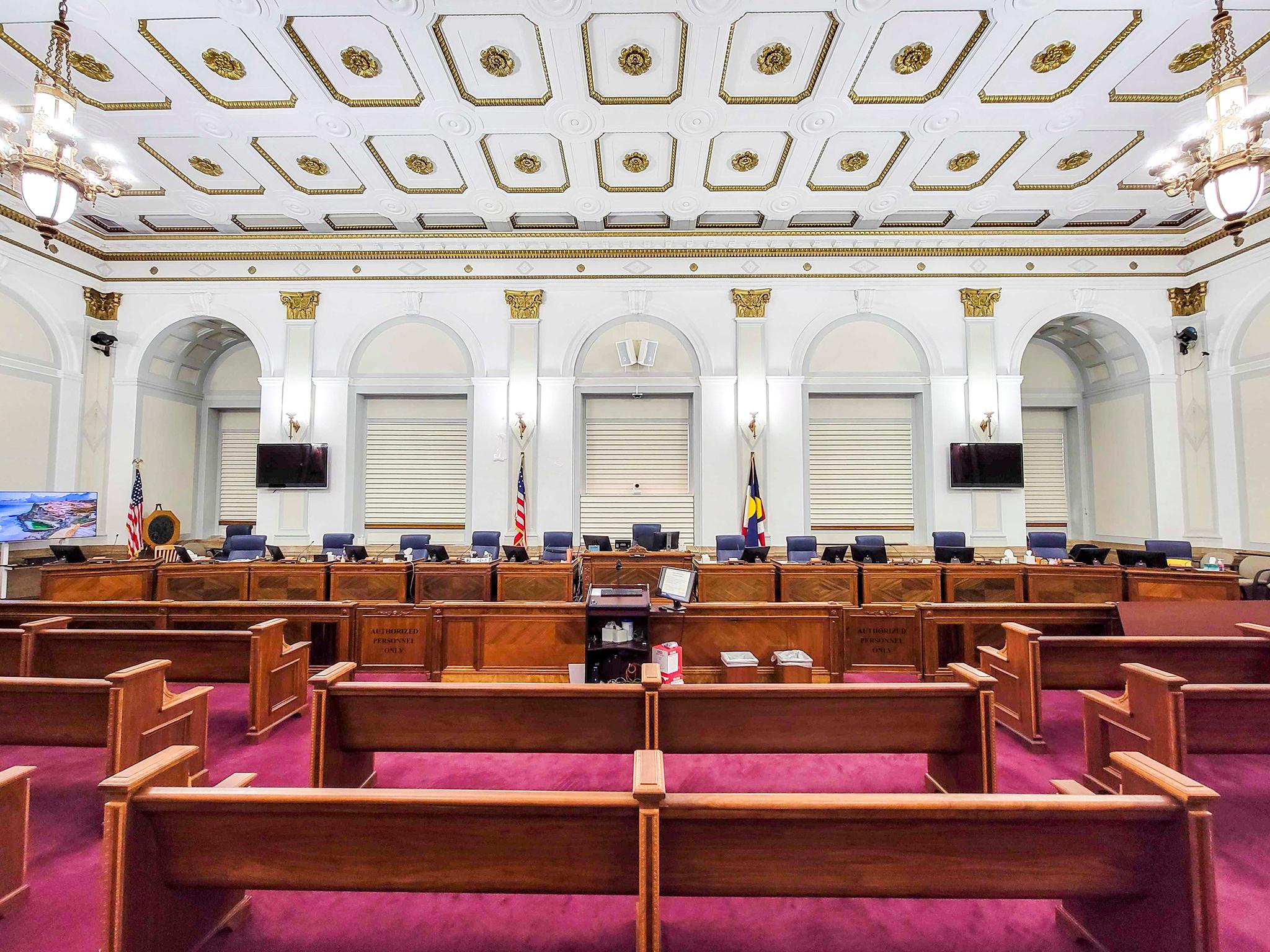The City of Denver is set to pay $95,000 to settle a lawsuit over a 2019 police standoff that ended in a house fire.
Two SWAT officers are accused of throwing tear gas canisters, which were allegedly forbidden for indoor use, into a residence on Inca Street during the standoff.
The Denver Fire Department later concluded that one of the gas grenades was the probable ignition source of the fire that destroyed much of the house.
The gas was deployed after an hours-long confrontation with a man in the home who had shot two police officers.
The canisters of flammable gas are “designed specifically for outdoor use due to its fire-producing capability,” according to materials from the manufacturer quoted in the lawsuit.
The canister that apparently lit the fire was contained in a metal “burn box,” a vented metal box designed to reduce fire risk — but the burn box landed on a futon and started a fire anyway, the lawsuit argued.
The canister’s manufacturer says the munitions burn at temperatures ranging from 200 to 800 degrees and are for use “only outdoors,” the lawsuit states.
What happened during the 2019 standoff
The standoff began late on the morning of Jan. 27, 2019, when police responded to a call about shots fired near 6th Avenue and Inca Street. A spent ammunition cartridge led them to 622 Inca St., the home of Mary Quintana. Police learned that there was a warrant for the arrest of her son, Joseph Quintana.
When Mary Quintana arrived at the house around 1 p.m., she granted police access to the home, the lawsuit states. When officers found Joseph Quintana in the basement, he allegedly fired shots, hitting one officer in his bulletproof vest and later hitting another in the leg, according to court documents. Both officers survived.
A much larger police presence, including snipers, soon arrived and arrayed themselves around the house. At 4:30 p.m., Metro SWAT officers deployed the chemical agents, some with a 40 mm launcher and others in burn boxes, the lawsuit stated. Joseph Quintana continued to fire a weapon as police deployed tear gas. The fourth canister, contained in a burn box, started the fire, according to an appeals court ruling.
The house was reported on fire by about 5:30 p.m. Joseph Quintana shot himself while the fire engulfed the house and later died of his injuries, according to the appeals court.
The two officers involved were ruled legally immune, but the city could still be sued
The lawsuit alleged that the city did not have rules or training for officers about the use of chemical munitions indoors. DPD “will respectfully decline” to comment on the settlement, but a spokesperson said on Monday the department was looking into Denverite’s questions about its policies for chemical munitions.
The lawsuit, filed in 2020, included the City and County of Denver, as well as two individual Denver police officers, Justin Dodge and Richard Eberharter, whom it accused of negligence. But a federal appeals court found earlier this year that the individual officers were legally immune because they were acting in the line of government duty.
“The historical facts are largely undisputed,” the appeals court wrote. “Mr. Quintana refused to leave the house, the police officers tried to force him out, and the police officers threw four canisters of tear gas inside the house with awareness that a fire might result. But there’s no evidence that the police officers expected a fire from the tear gas.”
It wasn’t enough to simply show that a fire could have resulted, even if the manufacturer’s warning said it might. Mary Quintana would have to prove that, “the police officers knew that the fourth canister of tear gas would cause a fire,” the judges wrote.
The two police officers said under oath that they believed a fire was “highly unlikely” because of their “extensive experience with burn boxes,” among other details noted by the appeals court.
But immunity for the individual officers still allowed the lawsuit against the city to continue — apparently leading to its likely settlement on Monday night, when the Denver City Council will vote on the settlement payment.
Mary Quintana’s attorney, Joe Salazar, said he had no comment on Monday. Salazar earlier said that insurance covered some of the loss, The Denver Post reported.













